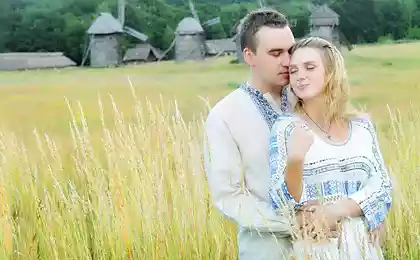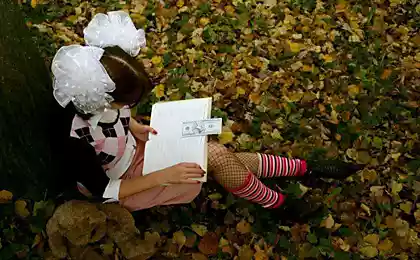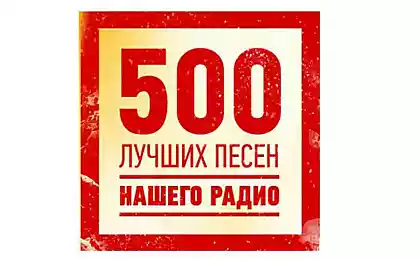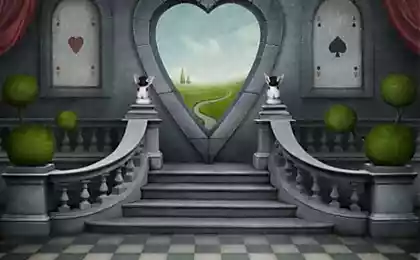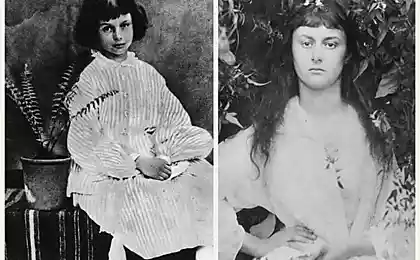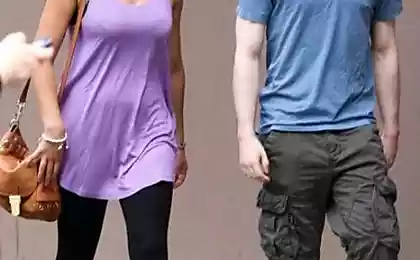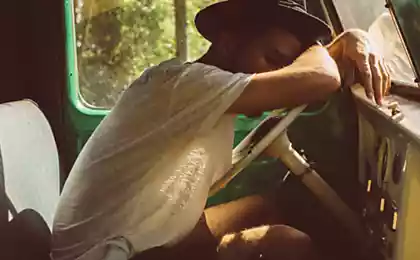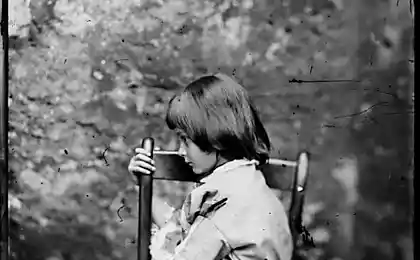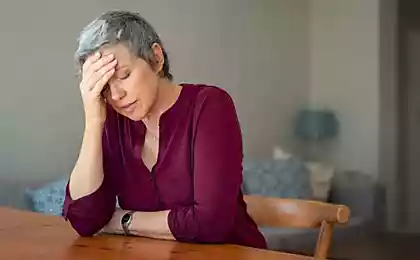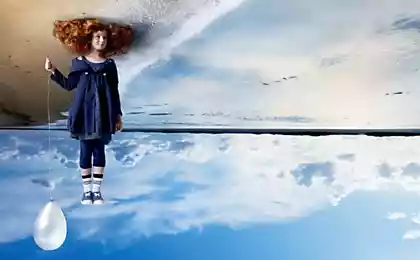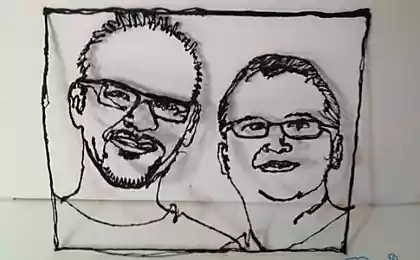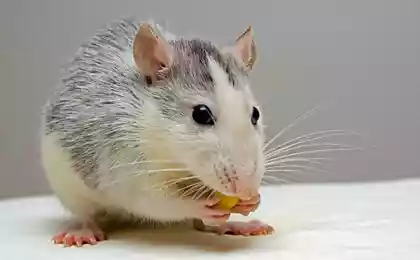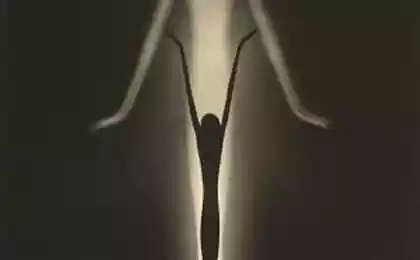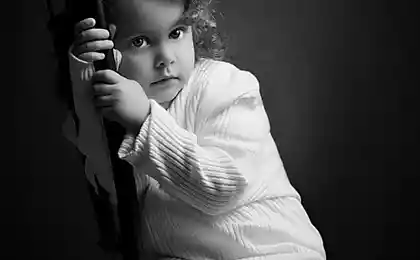486
"Taught, but have forgotten": misguided and true knowledge
"I know that I know nothing"But then Socrates and is considered one of the greatest philosophers of mankind: a critical attitude to one's own knowledge is not so easy. Often we think we quite understood the question and had studied the subject, but in fact it turns out that the whole picture doesn't add up. To make sure failure of his knowledge or understand what you're superficial understanding of a topic, you need to make some effort.
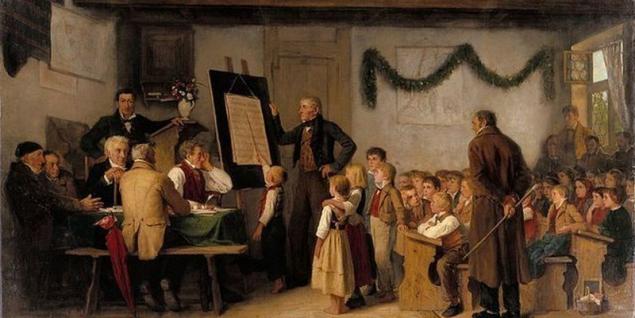
A specialist in cognitive science from the University of Virginia Daniel Willingham describes a false sense of knowledge, which lie escaped associative links, and tells how is the illusion of knowledge.
How to understand, we know something or not? At first glance, the answer is obvious: need to look into memory and check whether there is an answer to the question. However, if this mechanism worked smoothly, and the memory was simple filing cabinets, we always would say we know something or not. But mistakes do happen. Most likely, you had to go somewhere, vaguely suggesting that the route is familiar, and then find the road on Google maps. Sometimes confidence can not withstand the test of practice.
"I can't exactly explain it, but I know it!", says the student. Do not jump to conclusions. Perhaps he really spent a lot of time repetition, and it gave him a feeling of familiarity with the material. The mismatch between the real situation and the representation of the learner about themselves leads to the fact that the exam seems to him unfair. He for a long time I sincerely believed that knows the subject, but an outside observer with a few questions finds the opposite.
Where does the incorrect awareness?
Cognitive studies referenced in Daniel Willingham showed that the formation of the assessing judgments about the knowledge of the special role played by two factors.
First, it brings a General feeling of acquaintance with the subject — a sense of recognition. About the same happens when we see a man on the street, whose face seems familiar. But what's his name and where we met, can't remember it. The same goes for places, events about which we have heard, and books that are not read. In consciousness there is a vague images and associations, but no systematic knowledge and accurate information.
During the experiments it was proved that, knowing some key words of the question, the subjects tend to think they know the answer to this question. The same result was observed in the experiment where participants were asked to look at math problems and determine whether they will be able to calculate the answer in mind, or to remember it. When examples were found in the number of the previous tasks,subjects often drew the conclusion that we can make calculation in mind — even if the action in the example was different.
Conclusion about the ease of the entire example was done on the grounds that the number had already met and became "friends".
Secondly, the value is a partial relative or acquaintance with something: the brain is fooled when he knows a piece of information or even something similar.
During another experiment, people gave more confident answers when they asked who wrote the music for Swan lake, than who was the choreographer of this ballet. A number of composers known to many, but to name a few choreographers, not everyone can. While the composer's subjects could be called wrong, but their "sense knowledge" and confidence in the response was stronger.
How to make the knowledge real?
The most frequent methods of evaluation of their knowledge are rarely effective. When we think we know something, a mental check helps bad: the brain generates the space of associations, creating a sense of awareness. Reading can also lead to a deadlock: encountering the familiar words we think we understand the text.Another factor — a shallow dive into the subject. The teacher can build a lesson around a deep fundamental problems, and in memory of the students instead of understanding what it all was, there will be only details.
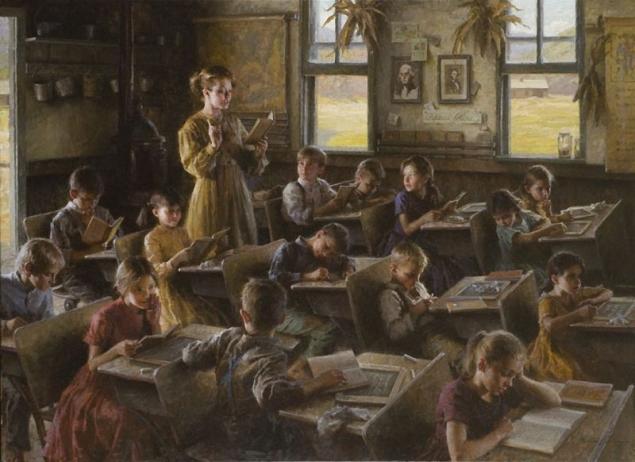
In short, the teacher and students can do everything right from a formal point of view (lectures, exercises, reading and taking notes), but as a result pupils ' knowledge still remains incomplete and fragmentary.And all because the process was not committed cognitive acts, we need to remember and understand. If the student believes that all understood and learned, he is likely to do something else, be distracted and will cease to participate in the work.
Here are some tips from a specialist in cognitive science that will help students to objectively assess their knowledge.
Author: Alice Zagradska
P. S. And remember, just changing your mind — together we change the world! ©
Source: //newtonew.com/school/incomplete-knowledge

A specialist in cognitive science from the University of Virginia Daniel Willingham describes a false sense of knowledge, which lie escaped associative links, and tells how is the illusion of knowledge.
How to understand, we know something or not? At first glance, the answer is obvious: need to look into memory and check whether there is an answer to the question. However, if this mechanism worked smoothly, and the memory was simple filing cabinets, we always would say we know something or not. But mistakes do happen. Most likely, you had to go somewhere, vaguely suggesting that the route is familiar, and then find the road on Google maps. Sometimes confidence can not withstand the test of practice.
"I can't exactly explain it, but I know it!", says the student. Do not jump to conclusions. Perhaps he really spent a lot of time repetition, and it gave him a feeling of familiarity with the material. The mismatch between the real situation and the representation of the learner about themselves leads to the fact that the exam seems to him unfair. He for a long time I sincerely believed that knows the subject, but an outside observer with a few questions finds the opposite.
Where does the incorrect awareness?
Cognitive studies referenced in Daniel Willingham showed that the formation of the assessing judgments about the knowledge of the special role played by two factors.
First, it brings a General feeling of acquaintance with the subject — a sense of recognition. About the same happens when we see a man on the street, whose face seems familiar. But what's his name and where we met, can't remember it. The same goes for places, events about which we have heard, and books that are not read. In consciousness there is a vague images and associations, but no systematic knowledge and accurate information.
During the experiments it was proved that, knowing some key words of the question, the subjects tend to think they know the answer to this question. The same result was observed in the experiment where participants were asked to look at math problems and determine whether they will be able to calculate the answer in mind, or to remember it. When examples were found in the number of the previous tasks,subjects often drew the conclusion that we can make calculation in mind — even if the action in the example was different.
Conclusion about the ease of the entire example was done on the grounds that the number had already met and became "friends".
Secondly, the value is a partial relative or acquaintance with something: the brain is fooled when he knows a piece of information or even something similar.
During another experiment, people gave more confident answers when they asked who wrote the music for Swan lake, than who was the choreographer of this ballet. A number of composers known to many, but to name a few choreographers, not everyone can. While the composer's subjects could be called wrong, but their "sense knowledge" and confidence in the response was stronger.
How to make the knowledge real?
The most frequent methods of evaluation of their knowledge are rarely effective. When we think we know something, a mental check helps bad: the brain generates the space of associations, creating a sense of awareness. Reading can also lead to a deadlock: encountering the familiar words we think we understand the text.Another factor — a shallow dive into the subject. The teacher can build a lesson around a deep fundamental problems, and in memory of the students instead of understanding what it all was, there will be only details.

In short, the teacher and students can do everything right from a formal point of view (lectures, exercises, reading and taking notes), but as a result pupils ' knowledge still remains incomplete and fragmentary.And all because the process was not committed cognitive acts, we need to remember and understand. If the student believes that all understood and learned, he is likely to do something else, be distracted and will cease to participate in the work.
Here are some tips from a specialist in cognitive science that will help students to objectively assess their knowledge.
- Students should remember the following:to know something means to be able to explain this "something" else, not just "to understand" when you regurgitate facts. Try to introduce practical tasks, where students need to explain the material in pairs.
- Ask them to summarize the knowledge on the topic in written form. A vague feeling of familiarity will not be able to turn into a thesis, and what is really stored in memory can. One of the most important criteria awareness — the ability to structure the information and highlight important.
- Start the day with a written self-test. Check such tasks optional, the main thing that everyone had to formulate and draw conclusions. Oral answer of a classmate at the blackboard creates a false feeling that you know the same thing. Therefore, to write — helpful. Then invite students to exchange papers and check each other.
- Ask the students to do self-testing at home. Let classmates ask each other questions to make sure they understand the material, and then move to what you do not understand. This is another way to recall the information, not just to feel recognition, having met in the book are familiar words. Formulating questions is also a great way to build reasoning and to really think.
- Explain how to work with the teaching AIDS, how to use them to prepare for exams.Learning to work with a coursebook under the teacher's guidance, the student will be able to formulate the main issues and highlight the key elements of the responses.
Author: Alice Zagradska
P. S. And remember, just changing your mind — together we change the world! ©
Source: //newtonew.com/school/incomplete-knowledge
You will never meet a strong person with a simple past.
Oil giants admitted: electric boom – a factor that will have to be considered

